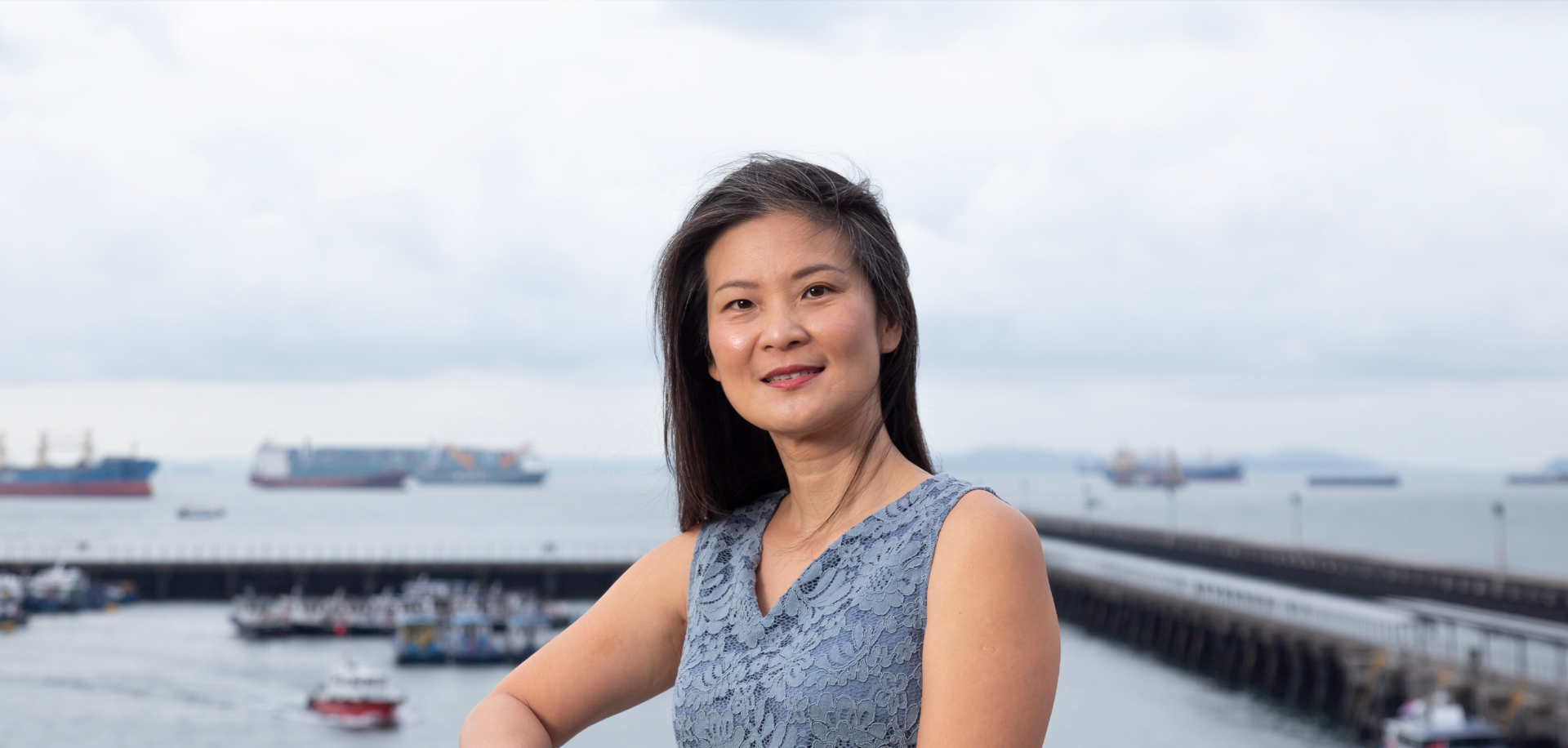
The differences between leading a startup and an established institution are obvious. The former requires flexibility and improvization while the latter involves ensuring some continuity as well as reinvention. Ley Hoon identifies certain similarities: such as the need for passion and purpose, and the ability to work in diverse groups.
Much of this stems from her year in Lausanne. Her reasons for selecting IMD included the small cohort size, focus on leadership track, and its provision of on-campus childcare facilities, highly valuable for her with a young family and a prized perk given the mature profile of the cohorts.
As a member of the 2010 intake, she took part in the two-week project work in South Africa, led by the then MBA Program Director Martha Maznevski, where she helped a small company with their marketing challenges, and rapidly had to learn how much consumer markets differ on different continents. She was also profoundly moved by the visit to the orphanage and understood the importance of social responsibility.
“A few of us when we came out told ourselves there really is so much we can do for this world,” she says.
Back in Lausanne, in her project work with a Swiss startup selling a beverage, she found the passion of the founder to be infectious.
“I still remember feeling the passion that he had for his product and how he felt so strongly about it. Working with him to try to make the sales and marketing of his product find an even wider reach was about translating what we learnt in class to action,” she says.
While there are similarities between the startup and the mature organization, she grasps the differences. Back in her native Singapore, after a role with the Ministry of Finance in international relations – where the exposure to different cultures at IMD helped her directly – she worked for Channel NewsAsia, the national news broadcaster. This entailed an adjustment to work in a creative environment where journalists and producers rely on their wits and autonomy to seize opportunities to secure exclusive stories.
“You need to always enrich yourself with as much experience and exposure as possible to make the best judgement call.”
In 2019, she was appointed Chief Executive of the Maritime and Port Authority of Singapore, responsible for the world’s largest transhipment and bunkering hub, at a strategic location where the Indian Ocean meets the Pacific. She had to adapt her style of leadership again managing across regulation and industry promotion, especially for effecting change:
“You develop a group of change agents and then you get them to influence three to four people and each three to four people further influence ten people and then you bring the whole cohort [with you],” she says.
Coping with the COVID pandemic was especially challenging for the Maritime and Port Authority of Singapore, as shipping and port is an essential business that needs to remain open 24/7 to keep ships going and goods flowing. She had to balance public health risks and the continuity of the port operations by considering factors such as the health of the ships’ crews, port staff and the need for essential supplies and process efficiency.
In addition, the Authority continues to push for the growing need for environmental sustainability and the digital revolution. These challenges are complex, significant in scale and global. So they cut across all functions.
“For a leader, how you are able to link the various pieces together and actually build teams to see beyond the scope of their own work, to collaborate across different sectors, not just within the organization, but also with other organizations is crucial,” she says.
It is no longer about individuals but about building the best team – one key lesson she took away strongly from IMD.
Her intellect is formidable; fluent in French as well as English, she holds an Honours in Economics from the University of Panthéon-Sorbonne in Paris. She blends strong analytical prowess with personal leadership ability. A particularly valuable insight from her year at IMD was the mental discipline to understand that “you only see the tip of the iceberg” from reports and briefings. A manager always benefits from deeper analysis to understand the dynamics in the market, the organization and the teams, and the trends and motives that drive them. The awareness that no one can know everything keeps her humble in her management style.
She describes the teaching of Martha Maznevski on diversity as particularly helpful – leaders need to understand how colleagues have different ways of approaching problems, allied to a strong awareness of their own strengths and weaknesses, across genders, races, religions and socioeconomic profiles.
It is often not possible to satisfy the whole team, however. A superficial consensus that pleases no one is often suboptimal, and a leader may need to decide on a course of action, and seek to win people over. The process of communication and engagement can be as important as the decision.
“You need to always enrich yourself with as much experience and exposure as possible, so that when the time comes when you need to make an important decision, your experience will allow you to frame it properly, think through the considerations, have a good team to advise you and therefore make a considered decision and the best judgement call.”



